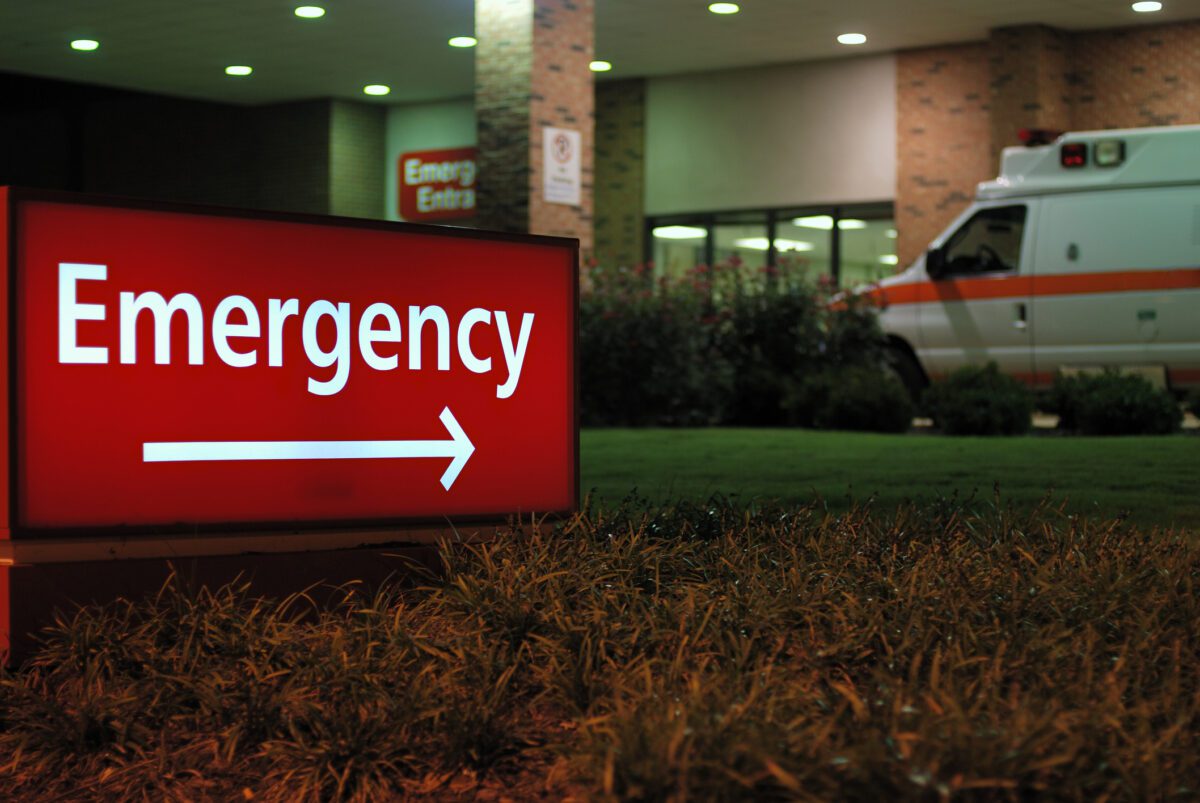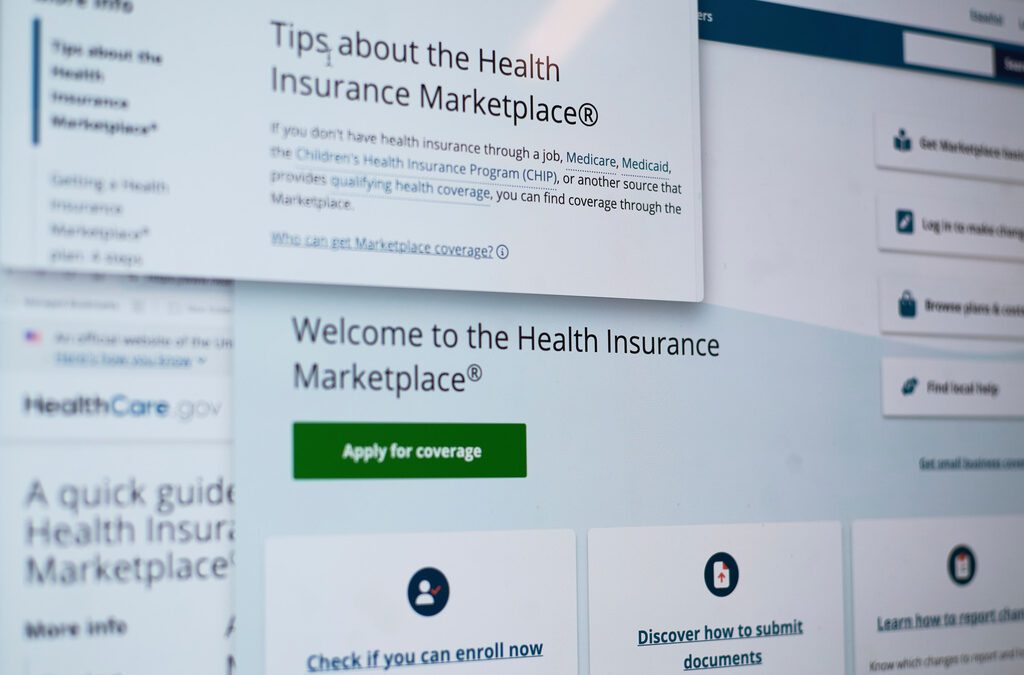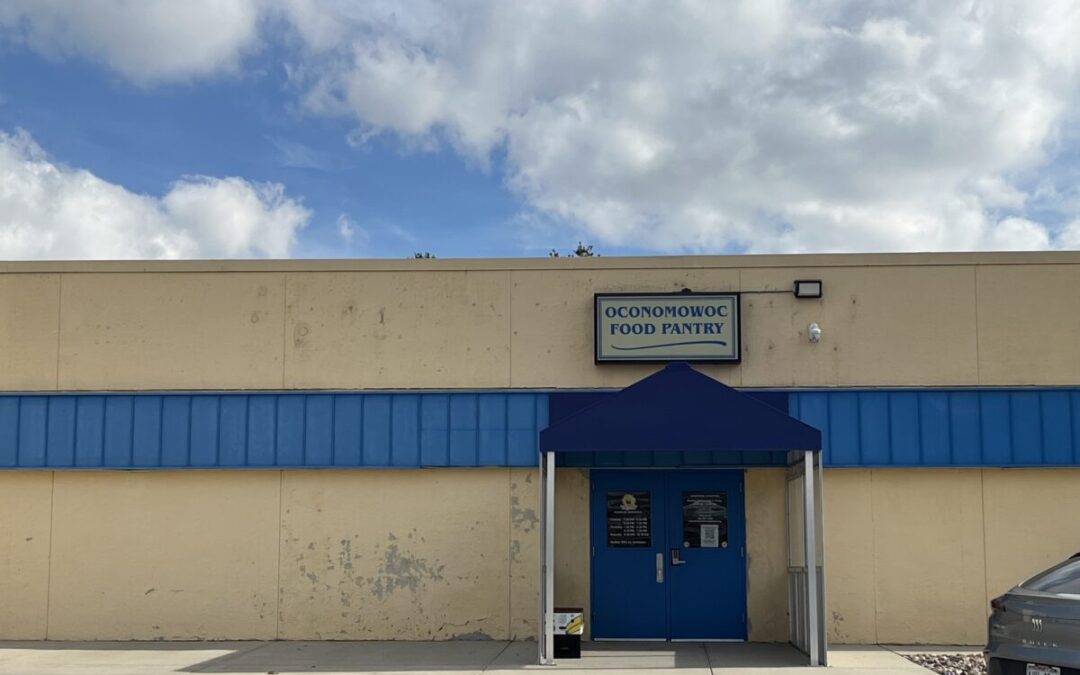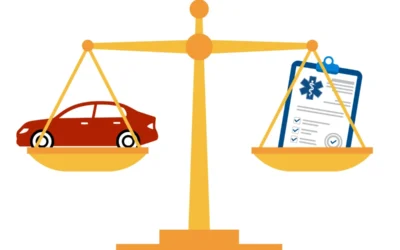
Medicaid provides stable, affordable health insurance coverage to lower-income working families so they can obtain care and preventative treatments before problems get big and expensive. Without insurance, many Americans' first contact with the healthcare system is in the Emergency Room. (Getty Images photo)
Republicans have rejected billions of dollars over the years—federal funds that could provide stable health insurance coverage to many and ease premium pressure on everyone else by improving rates for providers.
Wisconsin stands to gain $1.7 billion in federal funds that could be used to provide stable, affordable health insurance coverage to tens of thousands of families through Medicaid—and to improve reimbursement rates for hospitals, clinics, doctors, and other providers, according to new reporting from a nonpartisan research group in the state.
But despite benefits outlined by the Wisconsin Policy Forum, Republicans controlling the Legislature have turned down billions of dollars in a string of budget cycles since the Affordable Care Act (ACA) became law.
Healthcare advocates are hoping new maps that break a 12-year Republican gerrymander will lead to an Assembly and a Senate more in tune with issues like Medicaid expansion that have broad bipartisan public support.
The ACA offers subsidized premiums for private sector health insurance plans. The law also set up a mechanism for expanding Medicaid, the federally-supported, state-based health insurance program for lower-income and disabled Americans (known as BadgerCare in Wisconsin). A conservative-controlled US Supreme Court changed the law in a way that gives states the ability to accept or reject the federal incentives to cover more people through Medicaid—and Wisconsin is one of the handful of remaining states refusing to accept the federal expansion dollars.
“Expanding Medicaid during the 2025-27 state budget would cover more state residents and provide a total net benefit to state taxpayers of just over $1.7 billion over the two years,” according to the report, citing an annual savings of $212 million and a one-time incentive payment of $1.3 billion designed to raise the reimbursement rate to providers. The group does not advocate for or against expanding Medicaid as it outlines the history and fiscal impacts surrounding the debate.
Extending Medicaid coverage means fewer people in the state would be uninsured, a condition that makes their health care more expensive and drives up premium costs for everyone else. But providers note that if state governments’ reimbursement to them for taking care of Medicaid recipients is too low, it puts pressure on them to raise prices for patients on private insurance—which is what led to the federal incentive payment for higher reimbursements.
“States that expanded eligibility for Medicaid currently receive a 90% federal reimbursement for the cost of the newly added population,” said State Senate Minority Leader Dianne Hesselbein (D-Middleton). “Because Republicans in Wisconsin have consistently rejected opportunities to fully expand eligibility for Medicaid, Wisconsin currently only receives about a 60% federal reimbursement for these costs.”
Most Beneficial to ‘Red’ Counties
The Wisconsin Policy Forum report calculated how a Medicaid expansion would provide better access to affordable healthcare coverage in specific parts of the state, based on the portion of each county’s population with annual incomes between 100% and 138% of the Federal Poverty Limit (FPL)—the population most likely to qualify for expanded Medicaid coverage. Of the 290,000 residents who fall into this range, there are 10 counties where 7% or more of their population falls into this group. One is Milwaukee County while the other nine are rural counties, including Monroe, Rusk, and Forest, where more than 8% of the population could benefit from Medicaid expansion.
Emergency physician Dr. Chris Ford of Milwaukee recognizes the ongoing reduction in the number of completely uninsured patients since adoption of the ACA—but that’s all the more reason, in his view, to protect Medicaid’s lifeline to Wisconsin families.
“Low income families rely on this program just to have basic medical care,” Ford said on UpNorthNews Radio. “The basics to have their daily medications for hypertension, insulin, and things of that nature. There’s room to grow, in order to push for more access to care for many of the patients I see daily.”
“Many of the patients that I see don’t want to be in the emergency department,” Ford said of the advantage to having Medicaid coverage instead of relying on ER care. “They wish they could be at their primary care doctor’s office. They wish they could have access to insulin, have access to heart failure medications that could prevent them from needing to see me in the emergency department, needing to be admitted to the ICU (intensive care unit).”
As part of a recent Democratic Party of Wisconsin event to promote Medicaid expansion, former Wausau school board president Tricia Zunker summarized the frustration felt by those who have watched as 40 other states, including many under Republican control, move ahead of Wisconsin.
“It is absurd and frankly infuriating that Wisconsin Republicans want to continue to play politics with people’s lives,” Zunker said. “Health care is a basic necessity, and the Medicaid expansion would continue to make healthcare more accessible for vulnerable populations.”
Former President Donald Trump said at the last presidential debate that he has “concepts of a plan” to replace the Affordable Care Act, but past actions indicate a willingness to scrap the ACA and expanded Medicaid whether a replacement is ready or not, as well as ending the ability of Medicare to negotiate bulk prices with big pharmaceutical companies, remove coverage protections for reproductive rights and preexisting conditions, and allow the return of so-called junk plans that feature high deductibles and high rejection rates when policyholders try to get coverage approved.
“The bottom line is that Democrats care about one another,” Zunker said. “We care about our families. We care about our neighbors. We care about strangers on the street and want to see good for everybody. Whereas the Republicans continue, time and again, to want to just dig their heels in the ground and not work across party lines for the benefit of all.”
Support Our Cause
Thank you for taking the time to read our work. Before you go, we hope you'll consider supporting our values-driven journalism, which has always strived to make clear what's really at stake for Wisconsinites and our future.
Since day one, our goal here at UpNorthNews has always been to empower people across the state with fact-based news and information. We believe that when people are armed with knowledge about what's happening in their local, state, and federal governments—including who is working on their behalf and who is actively trying to block efforts aimed at improving the daily lives of Wisconsin families—they will be inspired to become civically engaged.


Congress gifts higher premiums to more than 300,000 Wisconsinites
By Judith Ruiz-Branch Heading into the holidays, hundreds of thousands of Wisconsinites will be burdened with wondering if they will be...

OPINION: Without the ACA Premium Tax Credit, my family’s health coverage is at risk
Like so many other working families, I don’t know what my family would do without the Affordable Care Act (ACA) premium tax credits. As these...

How to support Wisconsin residents as SNAP funding disappears
As the nation remains in a government shutdown, food assistance programs in Wisconsin are feeling the effects. FoodShare, Wisconsin’s federal...

October is Breast Cancer Awareness Month. Here’s how you can help in Wisconsin
It's Breast Cancer Awareness Month. Here's how you can help fight for a cure throughout Wisconsin. October is globally recognized as Breast Cancer...





